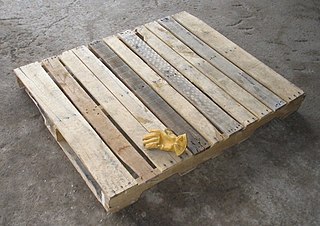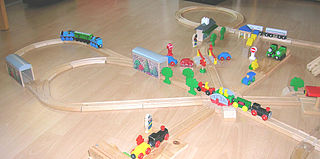
In commerce, supply chain management (SCM), the management of the flow of goods and services, involves the movement and storage of raw materials, of work-in-process inventory, and of finished goods from point of origin to point of consumption. Interconnected, interrelated or interlinked networks, channels and node businesses combine in the provision of products and services required by end customers in a supply chain. Supply-chain management has been defined as the "design, planning, execution, control, and monitoring of supply-chain activities with the objective of creating net value, building a competitive infrastructure, leveraging worldwide logistics, synchronizing supply with demand and measuring performance globally." SCM practice draws heavily from the areas of industrial engineering, systems engineering, operations management, logistics, procurement, information technology, and marketing and strives for an integrated approach. Marketing channels play an important role in supply-chain management. Current research in supply-chain management is concerned with topics related to sustainability and risk management, among others. Some suggest that the “people dimension” of SCM, ethical issues, internal integration, transparency/visibility, and human capital/talent management are topics that have, so far, been underrepresented on the research agenda.

Logistics is generally the detailed organization and implementation of a complex operation. In a general business sense, logistics is the management of the flow of things between the point of origin and the point of consumption to meet the requirements of customers or corporations. The resources managed in logistics may include tangible goods such as materials, equipment, and supplies, as well as food and other consumable items. The logistics of physical items usually involves the integration of information flow, materials handling, production, packaging, inventory, transportation, warehousing, and often security.
Modular synthesizers are synthesizers composed of separate modules of different functions. The modules can be connected together with patch cords, a matrix patching system, or switches by the user to create a patch. The output (voltages) from the modules may function as (audio) signals, control voltages, or logic/timing conditions. Typical modules are oscillators, filters (spectrum), amplifiers/gates (amplitude) and Envelope generators.

Covasna County is a county (județ) of Romania, in Transylvania, with the capital city at Sfântu Gheorghe.

A pallet is a flat transport structure, which supports goods in a stable fashion while being lifted by a forklift, a pallet jack, a front loader, a jacking device, or an erect crane. A pallet is the structural foundation of a unit load which allows handling and storage efficiencies. Goods or shipping containers are often placed on a pallet secured with strapping, stretch wrap or shrink wrap and shipped. Since its invention in the twentieth century, its use has dramatically supplanted older forms of crating like the wooden box and the wooden barrel, as it works well with modern packaging like corrugated boxes and intermodal containers commonly used for bulk shipping.

Herman Miller, Inc., based in Zeeland, Michigan, is an American company that produces office furniture and equipment, and home furnishings. Its signature products include the Equa chair, Aeron chair, Noguchi table, Marshmallow sofa, and the Eames Lounge Chair. Herman Miller is credited with the invention of the office cubicle in 1968 under then-director of research Robert Propst.

Staedtler Mars GmbH & Co. KG is a German manufacturing company based in Nuremberg. The firm was founded by J.S. Staedtler in 1835 and produces a large variety of stationery products, such as writing implements, art materials, and office supplies.
Modular design, or modularity in design, is a design theory and practice that subdivides a system into smaller parts called modules, which can be independently created, modified, replaced or exchanged between different systems.
Oberland is a German term and means Highlands.

Poste Italiane S.p.A. is the Italian postal service provider. Besides providing postal services, Gruppo Poste Italiane offers integrated communication, postal savings products, logistics, financial and insurance services throughout Italy.

Kuehne + Nagel International AG is a global transport and logistics company based in Schindellegi, Switzerland. It was founded in 1890, in Bremen, Germany, by August Kühne and Friedrich Nagel. It provides sea freight and airfreight forwarding, contract logistics, and overland businesses. In 2010, Kuehne + Nagel was the leading global freight forwarder, accounting for nearly 15% of the world's air and sea freight business by revenue, ahead of DHL Global Forwarding, DB Schenker Logistics, and Panalpina. As of 2017, it has more than 1,336 offices in 109 countries, with around 82,000 employees.

Rautaruukki Oyj using the marketing name Ruukki is a Finnish company, headquartered in Helsinki, which manufactures and supplies metal-based components and systems to the construction and engineering industries.

Wooden toy trains are toy trains that run on a wooden track system with grooves to guide the wheels of the rolling stock. While the trains, tracks and scenery accessories are made mainly of wood, the engines and cars connect to each other using metal hooks or small magnets, and some use plastic wheels mounted on metal axles. Some trains are made to resemble anthropomorphical, fictional, and prototypical railroad equipment.

Dräxlmaier Group is a German automotive component supplier active in vehicle electric systems, electrical and electronic parts, interiors, electricity storage systems, plastics, toolmaking and logistics. Founded in 1958, the family run enterprise is nowadays one of the top100 automotive suppliers, running 58 sites in 22 countries on 4 continents and is the market leader in the premium segment for both wiring systems and interior system. The Headquarters of the Dräxlmaier Group is based in Vilsbiburg, Lower Bavaria, Germany.

Cross-laminated timber (CLT) is a wood panel product made from gluing together layers of solid-sawn lumber, i.e., lumber cut from a single log. Each layer of boards is usually oriented perpendicular to adjacent layers and glued on the wide faces of each board, usually in a symmetric way so that the outer layers have the same orientation. An odd number of layers is most common, but there are configurations with even numbers as well. Regular timber is an anisotropic material, meaning that the physical properties change depending on the direction at which the force is applied. By gluing layers of wood at right angles, the panel is able to achieve better structural rigidity in both directions. It is similar to plywood but with distinctively thicker laminations.
The CLH Group is made up of Compañía Logística de Hidrocarburos, CLH Aviación S.A., Terminales Químicos, S.A. (Terquimsa), CLH Pipeline System Ltd (CLH-PS) in the United Kingdom, CLH Aviation Ireland in Ireland, Orpic Logistics Company L.L.C. (OLC) in Oman, CLH Panamá and CLH Aviación Ecuador. CLH Group is a company in Europe for the transportation and storage of oil products. The company has an 85-year history, as it comes from what used to be (CAMPSA). CLH is the result of the spin-off, in 1992, of the commercial assets of the former CAMPSA that was carried out as the culmination of the process for deregulating the oil sector after the approval of new European Community laws that ended the oil monopoly. The CLH Group's main activity consists of transporting oil products – essentially gasolines, diesels, fuel oils and aviation fuels – from the refineries to the storage facilities the company has distributed across the whole of Spain, where its customers' tank trucks load these products and deliver them to the end consumers. CLH holds logistics service contracts for the use of its facilities with most of the operators that do business in Spain, and competes with more than a dozen logistics companies that provide the Spanish market with storage and transportation services.
Mutares SE & Co. KGaA is a German-based holding company that acquires medium-sized companies in turnaround situations and facilitates their restructuring needs.

Eurorack is a modular synthesizer format originally specified in 1996 by Doepfer Musikelektronik. It has since grown in popularity, and as of 2018 has become a dominant hardware modular synthesizer format, with over 5000 modules available from more than 270 different manufacturers ranging from DIY kits and boutique, cottage-industry designers to well-known, established synth mass-manufacturers like Moog and Roland.
The Hettich Group is one of the world's leading manufacturers of furniture fittings. The company's headquarters are located in the eastern Westphalian town of Kirchlengern.
eMotorWerks, an Enel Group Company, is an electric vehicle infrastructure company, based in San Carlos, California. eMotorWerks was founded in 2010 by Val Miftakhov, who was also its CEO until it merged with Enel X. eMotorWerks was acquired by Enel through its EnerNOC, and is currently part of the Enel X group.












